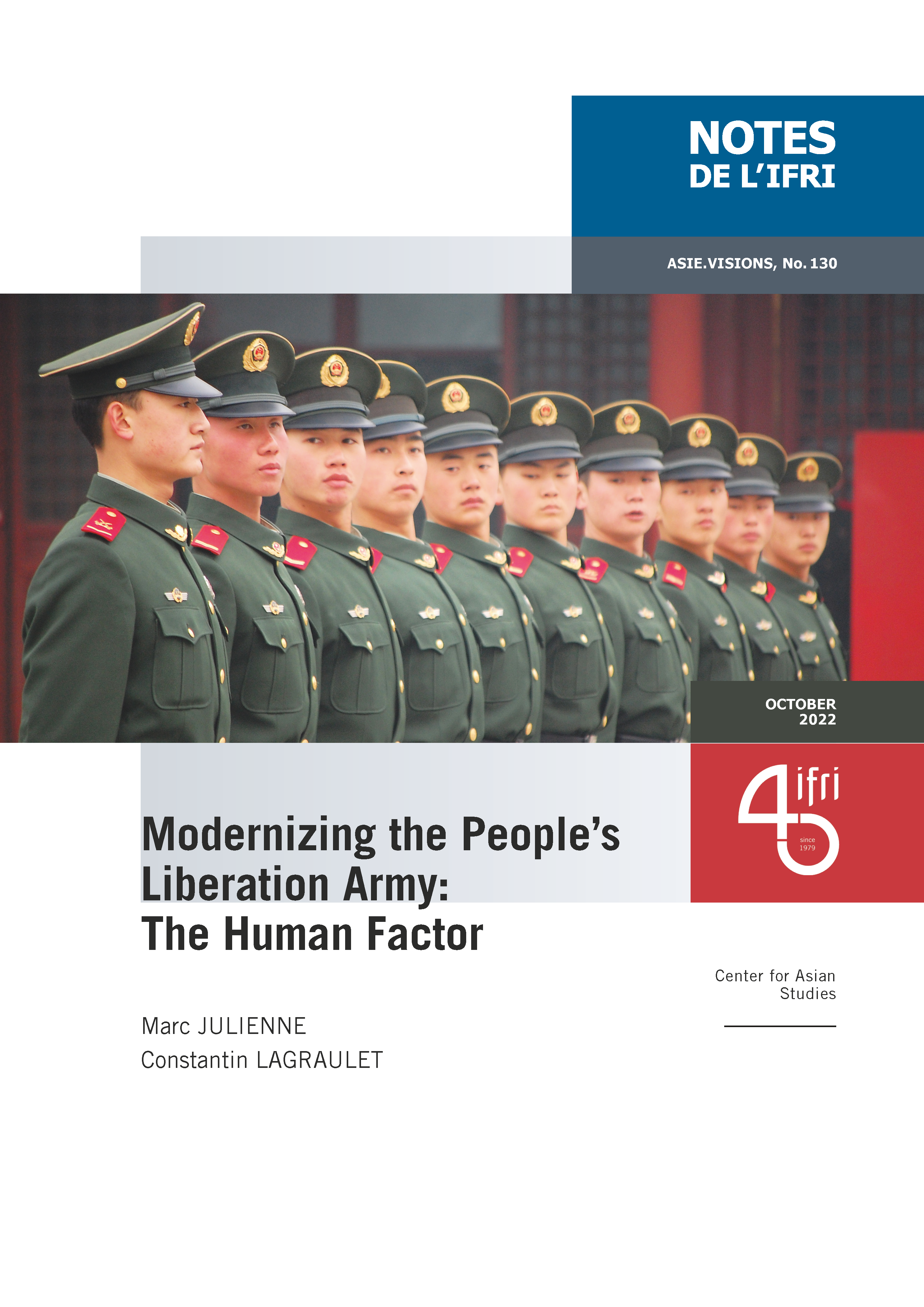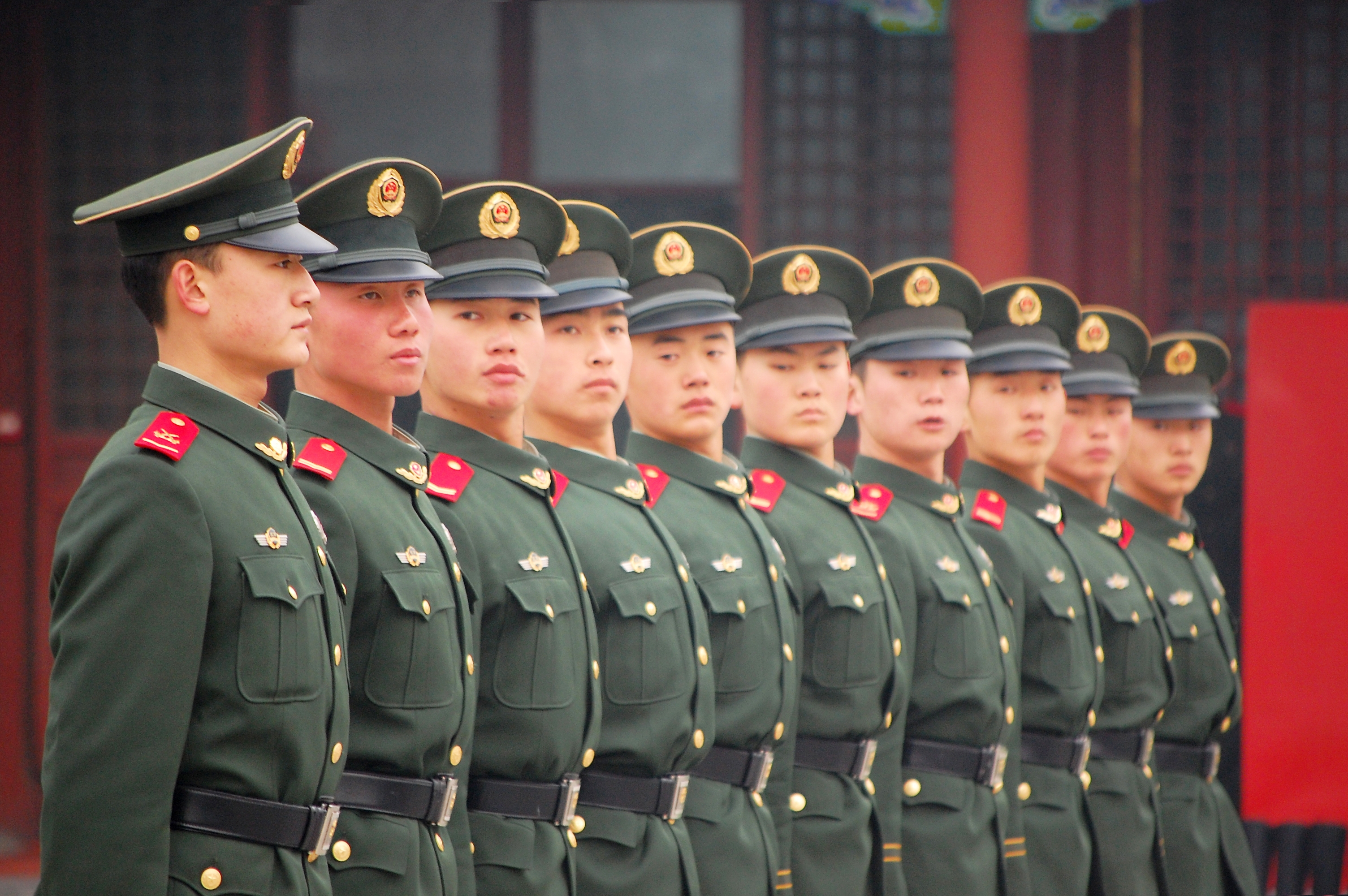Modernizing the People's Liberation Army: The Human Factor

The tremendous demographic challenges facing China will not significantly affect the People’s Liberation Army (PLA) in the immediate future, but will become more problematic in the medium and long term. The rapid aging of the population and the resulting socio-economic imbalances will put pressure on defense budgets, military wages and the general attractiveness of the army. For the time being, the PLA’s primary goal in terms of human resources is to build a less oversized, more professional army, prepared for high-intensity combat.

This objective is in line with the institutional reform of 2016, which shortened the chain of command and strengthened the political and ideological control of the Communist Party of China (CPC) over the PLA through an overhaul of the Central Military Commission (CMC).
This reform also involved a major restructuring of China’s armed forces. The PLA is pursuing a streamlining target that emphasizes quality over quantity. This qualitative improvement concerns equipment, forces and chains of command, and is driven by the need to elevate modernity, operational effectiveness and interoperability. An analysis of the evolution of the PLA Navy Marine Corps and the People’s Armed Police (PAP) demonstrates this qualitative upgrading trend and the prioritization of combat readiness.
To integrate increasingly modern and complex equipment, the PLA is also focusing on recruiting and retaining young conscripts and volunteers with a high level of education, in order to increase the number of commissioned and non-commissioned officers. The major reforms being carried out thus aim to enhance the status of the military so as to strengthen its economic and social attractiveness. On the other hand, the PLA, like other armies around the world, is confronted with societal phenomena such as internet addiction, near-sightedness and obesity, which hinder its ambitions and force it to make trade-offs in its selection standards.
Download the full analysis
This page contains only a summary of our work. If you would like to have access to all the information from our research on the subject, you can download the full version in PDF format.
Modernizing the People's Liberation Army: The Human Factor
Related centers and programs
Discover our other research centers and programsFind out more
Discover all our analysesJapan’s Takaichi Landslide: A New Face of Power
Prime Minister Sanae Takaichi has turned her exceptional popularity into a historic political victory. The snap elections of February 8 delivered an overwhelming majority for the Liberal Democratic Party (LDP), driven by strong support from young voters, drawn to her iconoclastic and dynamic image, and from conservative voters reassured by her vision of national assertiveness. This popularity lays the foundation for an ambitious strategy on both the domestic and international fronts.
The U.S. Policy Toward Taiwan Beyond Donald Trump: Mapping the American Stakeholders of U.S.-Taiwan Relations
Donald Trump’s return to the White House reintroduced acute uncertainty into the security commitment of the United States (U.S.) to Taiwan. Unlike President Joe Biden, who repeatedly stated the determination to defend Taiwan, President Trump refrains from commenting on the hypothetical U.S. response in the context of a cross-Strait crisis.

China’s Strategy Toward Pacific Island countries: Countering Taiwan and Western Influence
Over the past decade, China has deployed a diplomatic strategy toward the Pacific Island Countries (PICs). This strategy pursues two main objectives: countering Taiwan's diplomatic influence in the region and countering the influence of liberal democracies in what Beijing refers to as the "Global South."

Opening up the G7 to South Korea to Address Contemporary Global Challenges
The G7’s global influence has diminished as powers like China reshape international governance through initiatives such as BRICS and the Shanghai Cooperation Organisation (SCO). With the G7 now representing just 10 per cent of the world’s population and 28 per cent of global GDP, its relevance is increasingly questioned.












